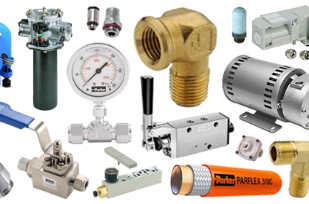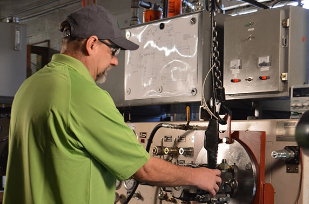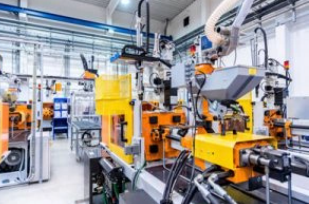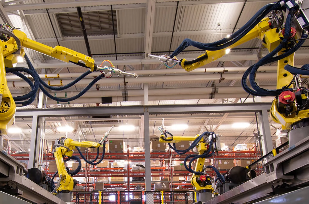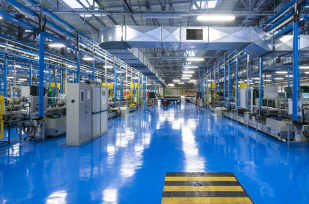Even though contract manufacturing is not very well known, you are probably using several parts made by a contract manufacturer to read this article!
Contract manufacturing is an important business concept that defines most modern industries. In this article, we are taking a closer look at contract manufacturing and how it affects some of the largest industries today.
Contract Manufacturing 101
Contract manufacturing, also known as private label manufacturing, refers to the business practice of producing parts or whole goods by one firm under the label of another firm. Contract manufacturers often provide services to numerous companies at a time, some of which could be competitors.
Contract manufacturing is a type of outsourcing where companies leverage the production capabilities of a third party to supplement or expand their own operations. Instead of completing a product from start to finish within a company, a business may opt to outsource certain steps of the manufacturing process.
With contract manufacturing, companies are able to expand their range of products, lower costs, and produce more units faster. It starts when a manufacturer from enters into a formal agreement with a private label manufacturer. When this happens, the manufacturer “subcontracts” the private label firm.
Sometimes contract manufacturers offer their own range of products to other companies. Interested companies may purchase the rights to the contract manufacturer’s products and sell them under their own brand.
The competition between different contract manufacturers is fierce. As there are no B2C interactions, contract manufacturers compete directly for the business of other companies. This drives private label prices down and makes them even more attractive to manufacturers seeking to expand through contract manufactured products.
Electronics
Some of the world’s largest private label manufacturers are active in the electronics industry. This includes the world’s largest contract manufacturer, Foxconn, who manufactures parts or even whole products for giants like Apple, Amazon, and Microsoft.
Foxconn is one of Apple’s 200 suppliers. They are responsible for manufacturing the iPhone and they are based in Taiwan. Most people have no idea where their iPhones are made. Popular opinion says they are made in China, but that’s misleading.
Sure, iPhones are assembled in China, but their parts are made by contract manufacturers from all across the world. The same holds true for other popular electronics like Amazon’s Kindle and Microsoft’s Xbox One console.
In fact, Foxconn is one of the largest electronic manufacturers in the world while they don’t design, market or sell any consumer electronics!
So, while most of these well-known products are designed in California, the supply chain is truly global. For example, the iPhone’s cameras are made in Japan, the radio frequency modules in Taiwan, the screen display in the US, and the gyroscopes in France and Italy.
Automotive and Aerospace
Contract manufacturing isn’t something new for the automotive and aerospace industries. For many years, traditional automakers have been sourcing components from major suppliers like Bosch, Magna-Steyr, and Continental.
In fact, almost 50% of all car manufacturing is done off-site by contract manufacturers. Most modern automotive companies do not build their own suspension components, gearboxes or electronics. All these are outsourced.
The same holds true for more basic components like tubing, metal parts, dashboard parts, and various external electronics such as car radios, security systems, and parking assistance.
So far, there have been no attempts to fully outsource the manufacture of a car model from start to finish, but many companies produce different cars under different brands and labels. The automotive industry is growing by 2.5% each year. Since the late 1990s, outsourcing has largely fueled this growth.
The aerospace industry is virtually identical to automotive when it comes to contract manufacturing. Most major aerospace contractors build the hulls and engines internally, but outsource various peripheral parts to third parties.
Robotics
With the surge of consumer robotics such as commercially available drones, the robotics industry is experiencing accelerated growth. Experts report faster growth than expected, which puts a big strain in the production capabilities of consumer and commercial robotics parts.
Contract manufacturing helps bridge the gap between supply and demand. Robotics also refers to a wide range of specialized industrial applications used in the production line of companies in various industries.
Pharmaceutical and Cosmetics
Contract manufacturing is prevalent in the pharmaceutical industry in the form of raw chemicals. In this case, contract manufacturers produce chemicals and not parts, but the principle is the same.
Some of the biggest names in the industry include Monsanto and Syngenta. Both of these companies produce the raw materials used by other companies in the production of various pharmaceutical products.
Moreover, the infrastructure and equipment required to develop complex chemicals are almost always outsourced to contract manufacturers.
Food Industry
Finally, the food industry relies heavily on contract manufacturing as well. Private label food companies are ubiquitous and produce everything from whole products to just the packaging of different product lines.
The food industry uses contract manufacturing in the development of new and improved production lines for their packaged food products. For example, pasteurization and bottling machinery is almost always developed through contract manufacturing.
Looking For Dependable Contract Manufacturers?
If you seek to outsource the manufacturing of your products to a company that can do anything from start to finish, check out RG Group. We offer a range of services to companies, including prototyping, testing, sub-assembly, complete assembly, and logistics.
As reputable contract manufacturers with more than 50 years of experience, we have the unique ability to provide business customers with innovative solutions in four mechanical disciplines: Electromechanical, Hydraulic, Robotics, and Pneumatic.

